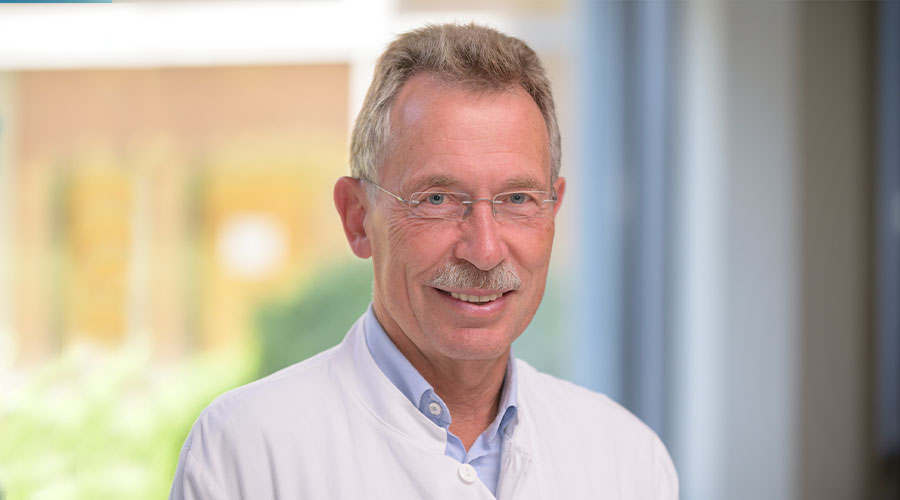| My Research Interest in RESIST |
Our research focus in RESIST is identification and validation of novel genes impairing the immune system leading to severe and atypical life threatening infections and predisposition to malignancies. Here we have a long standing experience with primary immunodeficiency (PID) patients which have undergone targeted gene panel (TGP) sequencing or whole exom sequencing (WES). But still many of these patients remain undiagnosed and therefore we look also for epigenetic profiles and the regulation of gene expression by the gut microbiome. Over the years we want to reduce the number of unsolved cases improving our understanding how the epigenome works and the relationship between gut microbiome, disease severity, and co-morbidity in PID patients with malignancies, autoimmunity and inflammation.
Prof. Schmidt
Prof. Dr. Reinhold E. Schmidt – Curriculum Vitae
Positions
Undergraduate and Postgraduate Training
Academic and Research Posts
Other Scientific Roles
Awards and Prizes

10 Selected Publications (of > 463 original publications)
Sogkas G, Fedchenko M, Dhingra A, Jablonka A, Schmidt RE, Atschekzei F. Primary immunodeficiency disorder caused by phosphoinositide 3-kinase δ deficiency. J Allergy Clin Immunol. 2018;142:1650-1653.e2.
Schmidt RE, Grimbacher B, Witte T. Autoimmunity and primary immunodeficiency: two sides of the same coin? Nat Rev Rheumatol. 2017;14:7-18.
Sogkas G, Atschekzei F, Schacht V, von Falck C, Jablonka A, Jacobs R, Stoll M, Witte T, Schmidt RE. First Association of Interleukin 12 Receptor Beta 1 Deficiency with Sjögren’s Syndrome. Front Immunol. 2017;8:885.
Schröder C, Baerlecken NT, Pannicke U, Dörk T, Witte T, Jacobs R, Stoll M, Schwarz K, Grimbacher B, Schmidt RE, Atschekzei F. Evaluation of RAG1 mutations in an adult with combined immunodeficiency and progressive multifocal leukoencephalopathy. Clin Immunol. 2017;179:1-7.
Atschekzei F, Dörk T, Schürmann P, Geffers R, Witte T, Schmidt RE. Limited role of interferon-kappa (IFNK) truncating mutations in common variable immunodeficiency. Cytokine. 2017;96:71-74.
Atschekzei F, Ahmad F, Witte T, Jacobs R, Schmidt RE. Limitation of simultaneous analysis of T-cell receptor and κ-deleting recombination excision circles based on multiplex real-time polymerase chain reaction in common variable immunodeficiency patients. Int Arch Allergy Immunol. 2016;171:136-140.
Li J, Jørgensen SF, Maggadottir SM, Bakay M, Warnatz K, Glessner J, Pandey R, Salzer U, Schmidt RE, Perez E, Resnick E, Goldacker S, Buchta M, Witte T, Padyukov L, Videm V, Folseraas T, Atschekzei F, Elder JT, Nair RP, Winkelmann J, Gieger C, Nöthen MM, Büning C, Brand S, Sullivan KE, Orange JS, Fevang B, Schreiber S, Lieb W, Aukrust P, Chapel H, Cunningham-Rundles C, Franke A, Karlsen TH, Grimbacher B, Hakonarson H, Hammarström L, Ellinghaus E. Association of CLEC16A with human common variable immunodeficiency disorder and role in murine B cells. Nat Commun. 2015 Apr 20;6:6804
Schubert D, Bode C, Kenefeck R, Hou TZ, Wing JB, Kennedy A, Bulashevska A, Petersen BS, Schäffer AA, Grüning BA, Unger S, Frede N, Baumann U, Witte T, Schmidt RE, Dueckers G, Niehues T, Seneviratne S, Kanariou M, Speckmann C, Ehl S, Rensing-Ehl A, Warnatz K, Rakhmanov M, Thimme R, Hasselblatt P, Emmerich F, Cathomen T, Backofen R, Fisch P, Seidl M, May A, Schmitt-Graeff A, Ikemizu S, Salzer U, Franke A, Sakaguchi S, Walker LS, Sansom DM, Grimbacher B. Autosomal dominant immune dysregulation syndrome in humans with CTLA4 mutations. Nat Med. 2014;20:1410-6.
Plant D, Flynn E, Mbarek H, Dieudé P, Cornelis F, Arlestig L, Dahlqvist SR, Goulielmos G, Boumpas DT, Sidiropoulos P, Johansen JS, Ornbjerg LM, Hetland ML, Klareskog L, Filer A, Buckley CD, Raza K, Witte T, Schmidt RE, Worthington J. Investigation of potential non-HLA rheumatoid arthritis susceptibility loci in a European cohort increases the evidence for nine markers. Ann Rheum Dis 2010; 69:1548-53.
Forssmann WG, The YH, Stoll M, Adermann K, Albrecht U, Barlos K, Busmann A, Canales-Mayordomo A, Giménez-Gallego G, Hirsch J, Jiménez-Barbero J, Meyer-Olson D, Münch J, Pérez-Castells J, Ständker L, Kirchhoff F, Schmidt RE. Short-term monotherapy in HIV-infected patients with a virus entry inhibitor against the gp41 fusion peptide. Sci Transl Med. 2010; 2:63re3.



